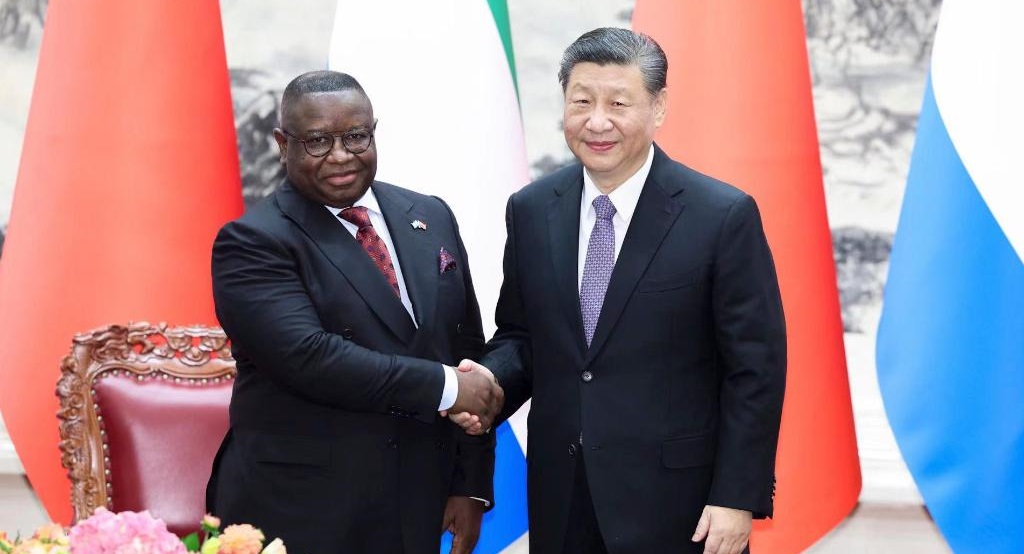China’s influence over Sierra Leone’s mineral sector continues to grow, with new data revealing the Asian nation accounted for 88% of the West African country’s mineral exports between January and July 2024.
Figures released by the National Minerals Agency (NMA) in its 2024 newsletter show that China received $1.03 billion of Sierra Leone’s $1.56 billion total export value, nearly two-thirds of all exports with key exports being iron ore, titanium ore, diamonds, aluminum ore, and cocoa beans.
Chinese investment in Sierra Leone’s mining sector, particularly in iron ore, bauxite, rutile, and diamond operations, has fueled this trade relationship. These resources are vital for China’s industrial growth, making Sierra Leone a key supplier.
While the trade partnership brings revenue and jobs, economists warn of the risks of such heavy dependence. Any economic downturn or policy shift in China could have significant repercussions for Sierra Leone’s economy.
“The concentration of exports to a single partner creates vulnerabilities,” commented one economic analyst. “Diversification is crucial for long-term economic stability.”
Beyond China, other export destinations include Switzerland (6% of exports in early 2024), likely due to its status as a commodities hub, and Belgium (2%), historically linked to the diamond trade.
Experts are urging Sierra Leone to broaden its trade partnerships with European, North American, and other African nations. They also emphasize the importance of developing local mineral processing industries to add value to raw materials before export, fostering greater industrialization and job creation.
The two-way trade relationship sees China also as Sierra Leone’s largest import partner. In 2023, Sierra Leone imported $611 million worth of Chinese goods, including rice, medicines, cement, cars, and machinery. This further solidifies China’s economic footprint in the country.
While Sierra Leone’s mineral sector, boosted by new projects and investments, is expected to remain a vital economic engine, the country faces the challenge of managing its trade relationships strategically.




 2 Comments
2 Comments










Hmmm with this export out of this country while the government could not ask for a factory establish in this country where the can start manufacturer this raw materials in to finish good.
Aaaaaa me
What is happen in this our country, when would our leaders wake up from their sleep who can a country export 88℅ of it natural resources in raw form why cant you ask these your so call friends to established a factory in your country a serious country will never call this type of business that is going through chain and Sierra Leone a good deal at all wake up Sierra Leone